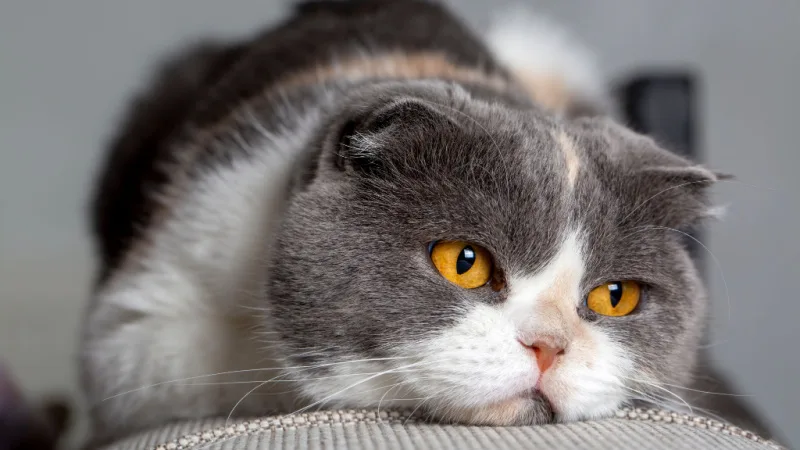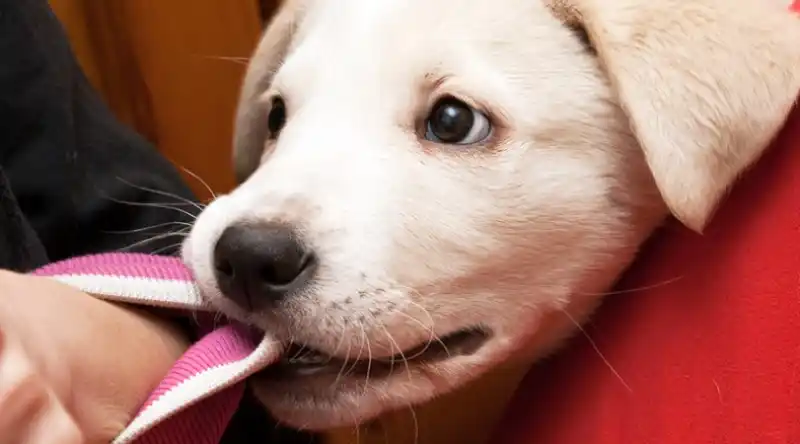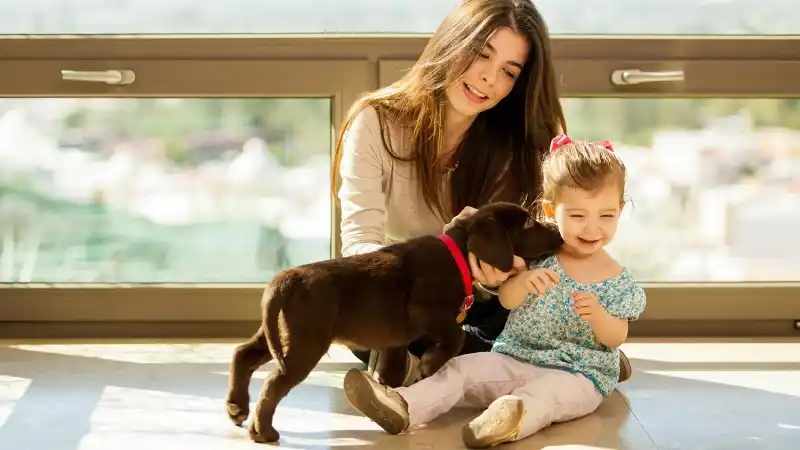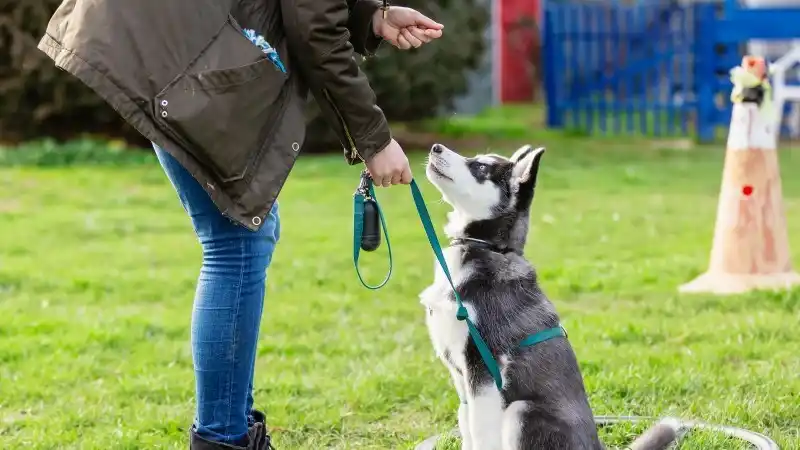Do Cats Get Sad?
Is your cat down in the dumps? Here are 5 ways to tell if your cat is sad, including changes in appetite or bowel movements and failure to groom.

Aloof, independent, and often mysterious, cats aren’t known as expressive, emotional beings. This leads many people to ask, “Do cats get sad?” or “Is my cat happy?”. But, long-time cat owners know that cats do experience the full range of emotions, and love their people in their own way.
Animal behaviorist Warren Ecksteinconfirms that cats feel emotions that humans feel, and we, as pet owners, need to be aware of that. He says:
“A lot of problems arise when owners don’t realize the cat has a range of emotions and don’t know how to react to the cat when it might be feeling anxious or depressed… When you take a cat into a home, you have to treat it like part of the family. So, just like the humans in your life, look out for the signs that your cat may be sad or depressed and take measures to support them and make them feel better.”
How Can I Tell If My Cat Is Sad?
Just like in humans, there is a difference between sadness and depression in cats, though often the symptoms are the same. If you notice any of the below in your cat, don’t immediately panic, they may be having an off day, their schedule may have changed thus throwing their day out of whack, or they may have misplaced their favorite toy and are sad they can’t find it. Just because a cat is sad doesn’t mean they’re depressed.
However, if you notice that your cat is displaying the below signs for an extended period and it is starting to impact them physically, you may want to bring them to your vet for a wellness checkup to make sure there aren’t other factors at play.
Loss or Changes in Appetite
We all know the siren call of a cat whose dinner is delayed by 1.2 minutes. If your cat typically has a healthy appetite or demands food at certain times and you notice a decline in their eating habits, it could be a sign that they’re sad. Of course, this is not the only possible explanation, so keep an eye on them and involve your vet if you get concerned.
Changes in Bowel Movements
Most cats are easy to litter train, so if your cat is having accidents around the house, it’s a sign that something is up. Whether it’s a call for attention, physical issue, or the result of your cat’s emotional state, it is something you’ll have to observe and determine based on other factors of your cat’s behavior.
Ignoring Loved Ones or Favorite Activities
If your cat is usually snuggly or crazy about play and is now sullen and alone, they may be feeling sadness and just need some time apart from the family. On the opposite side of that, if you cat suddenly feels a need for more attention and affection, they may be lonely and need comforting. A common sign of feline sadness is a sudden change in behavior around their family.
While cats are known for their ability to sleep long hours, most cats have a schedule with active times throughout the day and night. If your cat is sleeping more than usual and not getting any exercise or social time with their family, take note and keep an eye on them.
Increase in Frequency or Volume of Chatter
Is your cat more talkative or louder than usual? Listen to them! This may be a cry for attention or a sign that more is going on and your cat doesn’t know how to process it.
Failure to Groom Themselves
Most cats are good at keeping themselves clean, but if you notice your normally clean cat is becoming matted or unkempt, this change in behavior may be emotional.
It is not likely that a cat displaying just one of the above symptoms is a cause for alarm, and even if your cat is displaying all of them at once, don’t immediately jump to conclusions. The best way to determine if the above are related to your cat’s mental or physical health as opposed to just a phase they’re going through is to observe your cat. They may come out of it on their own, or you may have to help.
Why Is My Cat Sad?
Cats may experience sadness for a myriad of reasons, so if it’s not immediately obvious, think back to recent interactions with your cat or events in their life to determine if anything out of the ordinary occurred. Here are some ideas that may have an impact on your cat’s emotional state:
Changes in a Cat’s Environment
Have you recently moved or redecorated?Your cat may be having trouble adjusting to their new surroundings, and possibly missing the way things used to be. If this is the case, use something that they will find familiar and put it in their favorite spot. Maybe it’s a toy your cat loves, or a blanket they like to snuggle that smells and feels like home, but no matter what, put it somewhere the cat will be comfortable and allow time for them to adjust to their new surroundings.
A New Addition to the Family
Adding a new family member, whether it’s a new pet or baby, is a monumental event in a cat’s life. Some cats may immediately take to their new housemate, and others may be terrified by a new presence. Even if the new addition is a friend for the cat in question, it’s a lot for a cat to process. Make sure you take steps to keep your cat as comfortable as possible throughout the introduction process.
Loss of a Loved One
We already support the idea that cats feel emotion, so of course that means they feel love too. If someone or something they love dies or leaves, a cat will grieve. It may be painful to watch, and you may feel helpless that you can’t talk your cat through their grief, but it’s a natural process, and with time and love, your cat will come through it. If it becomes prolonged or starts to impact your cat’s physical health, don’t hesitate to reach out to your vet for advice.
How Can I Help My Cat When They’re Sad?
You love your cat, so of course you want to help when they’re sad. There are some easy things you can do to help your cat through their sadness. Most of them are simple, like spending more quality time together and playing soothing music. Find a new toy or activity to get your cat excited. Select one that has a fun texture or sound, or find a puzzle toy designed for feline engagement.
Try a new food or treat. Make sure you introduce new food to your cat safely, but a new flavor of their favorite brand, or a new treat may be enough to cheer them up and get them out of their funk. Similarly, there are over-the-counter cat supplements that may help kitty feel better, but be sure to run this by your vet, especially if your cat is on prescription medications.
Typically, cats can feel better with time, patience, and love. So, give kitty whatever they need to feel better, and a few extra kisses (if your cat is OK with them). If you notice that they aren’t getting better, are losing an extreme amount of weight, or just seem to be experiencing more symptoms, reach out to your vet to make sure there isn’t something else at play.
Take some of the stress out of the unexpected with Accident & Illness Coverage from AKC Pet Insurance (underwritten by Independence American Insurance Company). Our cat pet insurance plans are designed to be there when you need them, allowing you to focus more on the health of your pet and less on costly veterinary bills. Click here for a quote today!
CJ has always wanted to be a writer. She even threatened to drop out after her first day of kindergarten when they weren’t immediately going to teach her to read and write. Fortunately, she stayed in school, earned her degree in Creative Writing from Christopher Newport University, and now gets to live her best life with her husband, 3 Japanese Chins, and cat writing for AKC Pet Insurance.
READ MORE ARTICLES

